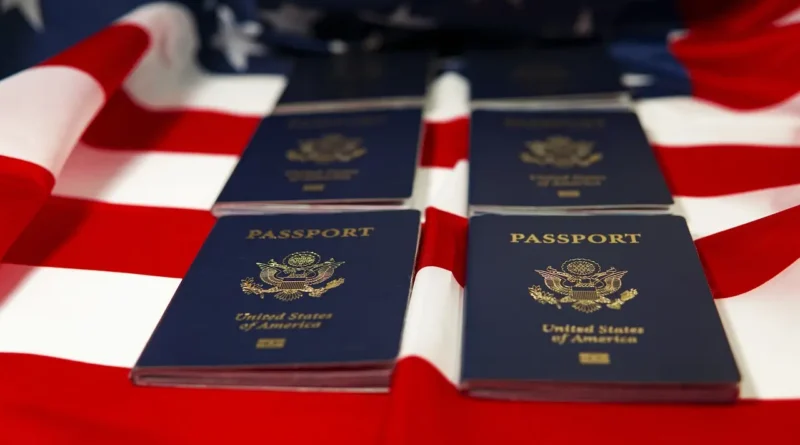How To Make Illegal Aliens Deport Themselves
A Self-Deportation Solution: How the Right Laws Could Encourage Voluntary Departure of Illegal Aliens
How To Make Illegal Aliens Deport Themselves. The debate over illegal immigration has been a persistent challenge in the United States, with millions of illegal aliens residing in the country. Some advocate for mass deportation, which would involve significant resources and the disruption of millions of lives. However, a more pragmatic and cost-effective solution lies in the concept of “self-deportation,” where illegal immigrants voluntarily return to their home countries due to strict legal and economic consequences for remaining in the U.S.
This strategy doesn’t rely on rounding up millions of people but rather on creating conditions that make it impossible for them to stay. Through targeted laws and regulations, self-deportation could be a realistic approach to addressing illegal immigration without the need for sweeping deportation raids.
Table of Contents
Targeting the Employment Magnet: Fines and Prison Time for Businesses
One of the most compelling reasons illegal immigrants come to the U.S. is the availability of jobs, often at wages lower than what citizens or legal residents would accept. If the incentives to stay and work illegally are eliminated, the need for deportation will likely be reduced. The key point of this approach involves targeting businesses that hire illegal alien workers.
A law that mandates severe penalties for businesses employing illegal aliens would be a key component of this strategy. The penalties should include both heavy fines and the threat of prison time for business owners and managers who knowingly hire illegal alien workers. This law could be modeled on the already existing but inconsistently enforced E-Verify system, which checks whether prospective employees are legally authorized to work in the U.S. By making E-Verify mandatory for all employers and imposing steep penalties for noncompliance, it would become significantly harder for illegal aliens to find work.
The fines should not be one size fits all. The same fine for all companies would not be fair and would allow larger businesses to afford the fines easier than smaller ones. The fines should be based on a percentage of a companies value or yearly profits. That way all companies are treated equal.
Heavy Fines
The heaviest fine structure for employers could be tiered, with penalties increasing based on the number of illegal workers employed. For example, a small business that hires one or two undocumented workers could face a fine of $25,000 per violation, while larger companies could face fines of up to $100,000 or more per undocumented employee. These fines would serve as a strong deterrent against illegal hiring practices. Revenue from these fines could be reinvested in border security and legal immigration processes, making this a self-sustaining approach.
Prison Time
In addition to fines, repeat offenders could face mandatory prison sentences. A first-time offense might result in probation, but subsequent violations could carry a sentence of up to 10 years in federal prison. The prospect of personal criminal liability would force business owners and managers to think twice before engaging in illegal hiring. This would significantly reduce the incentive for illegal immigrants to stay, as the demand for under-the-table labor would diminish.
Stricter Enforcement on Housing
Employment isn’t the only draw for illegal immigrants; housing is another critical factor. Laws that place penalties on landlords who knowingly rent to illegal immigrants could be another step in making it harder for undocumented individuals to remain in the country. These penalties could mirror those applied to businesses, with fines based on the number of tenants and repeat offenses leading to prison time. If illegal immigrants are unable to secure both housing and employment, many would find it untenable to stay in the U.S. and would choose to return to their home countries on their own.
The Voluntary Exit Option
Critics of harsh immigration laws often point out the need for a humane solution. Self-deportation policies would allow for a grace period during which illegal immigrants could leave the country voluntarily without facing legal consequences. This voluntary departure window might be set at six months to a year, giving undocumented residents ample time to make arrangements for their return home.
During this period, immigrants would be able to sell property, close business deals, and make a safe and orderly exit. Many individuals who have lived in the U.S. for years may be willing to leave if they are given the chance to do so without fear of being hunted down by Immigration and Customs Enforcement (ICE) agents. This approach would be far less disruptive and chaotic than mass deportation and would show a level of respect for the individuals involved. It also avoids the potential public relations nightmare of scenes where families are separated, or long-term residents are forcibly removed.
Capital Punishment for Repeat Offenders
While the idea of capital punishment for immigration violations may seem extreme, it could serve as a powerful deterrent. For those who willingly leave during the grace period, no further penalties would apply. However, the law could stipulate that those who re-enter the country illegally after deportation or self-deportation face severe consequences, including capital punishment for multiple offenses.
The rationale behind such a severe penalty is rooted in the concept of deterrence. If illegal immigrants knew that returning to the U.S. unlawfully after leaving could result in capital punishment, many would be far less likely to attempt it. This law would send a strong message: the U.S. respects its borders, and violators who repeatedly disregard immigration laws face the most severe consequences. While capital punishment would likely be reserved for extreme cases of multiple violations or those linked to criminal activities such as drug smuggling or human trafficking, its mere existence would dissuade many from attempting to re-enter the country illegally.
Other Legal Measures to Ensure Voluntary Departure
In addition to employment and housing laws, other legal measures could be put in place to encourage self-deportation. These include:
- Increased Border Patrol Funding: Enhanced border security would prevent new illegal crossings while ensuring that those who leave do not re-enter without detection.
- Denying Public Benefits: Many illegal immigrants stay in the U.S. because they can access public benefits such as healthcare, education for their children, and other social services. Laws that restrict access to these benefits for those without legal status would remove another incentive to stay.
- No Path to Citizenship for Repeat Offenders: For illegal immigrants who remain after the grace period or re-enter the country after self-deportation, the law could prohibit them from ever applying for legal residency or citizenship. This would further discourage individuals from attempting to return.
- Public Awareness Campaigns: Informing illegal immigrants about the voluntary departure option and the consequences of staying illegally would be crucial. Campaigns that reach immigrant communities, both in the U.S. and abroad, could spread the message that self-deportation is the best and most humane option available, and the risks of staying are far too high.
Benefits for All Parties Involved
The beauty of this self-deportation strategy is that it works for all parties involved. For the U.S. government, it avoids the enormous cost and logistics of forcibly deporting millions of people. Mass deportation would be a costly endeavor, requiring billions of dollars and an expanded law enforcement apparatus. A self-deportation strategy reduces these costs by encouraging voluntary compliance.
For illegal immigrants, this approach offers a humane alternative to forced removal. Instead of living in fear of being deported at any moment, they are given a reasonable period to leave on their own terms. This respect for their dignity would mitigate some of the harsher criticisms of strict immigration policies.
For American businesses and citizens, this approach also offers benefits. By enforcing immigration laws, American workers would face less competition from undocumented labor, potentially leading to higher wages. Meanwhile, businesses would operate on a more level playing field, with unscrupulous employers no longer able to gain an unfair advantage by hiring cheap, illegal labor.
How To Make Illegal Aliens Deport Themselves
Conclusion: A Humane and Effective Solution
In conclusion, self-deportation offers a balanced and humane approach to addressing the problem of illegal immigration. By enacting strict laws that impose severe penalties on businesses, landlords, and repeat offenders, the U.S. can make it exceedingly difficult for illegal immigrants to stay. At the same time, offering a voluntary departure window ensures that those affected can leave on their own terms.
While some may view aspects of this approach, such as capital punishment for repeat offenders, as extreme, they would serve as effective deterrents. Ultimately, this strategy benefits everyone involved, and it avoids the chaos and moral challenges of mass deportation. By passing the right laws, illegal immigrants would have every incentive to deport themselves, solving the problem without heavy-handed government intervention.




